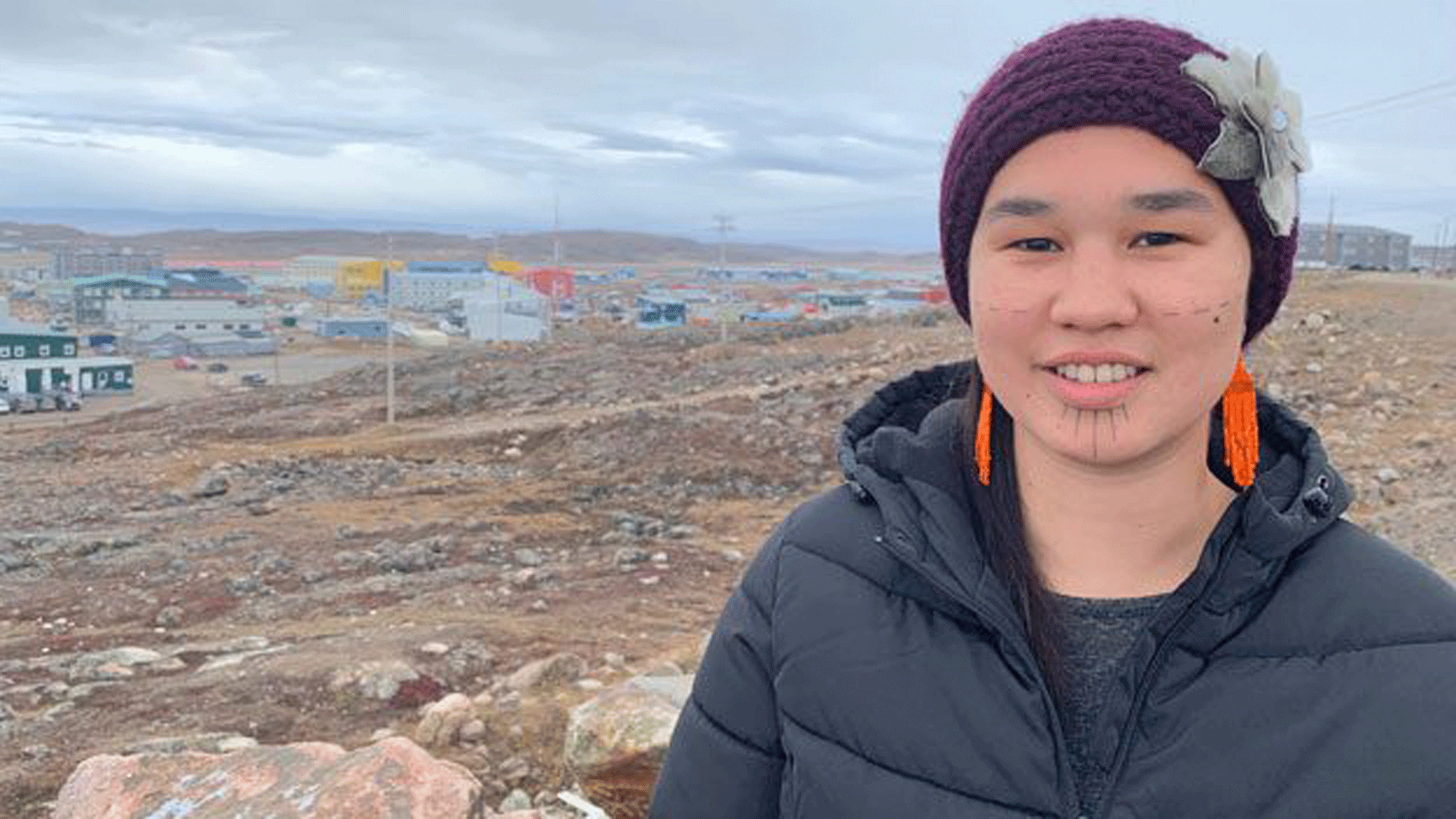Amid ongoing calls for police reform across the country, Nunavut’s member in the House of Commons says death involving RCMP is a complicated reality for Inuit in the territory – one that requires not only police reform but investments in mental wellness, social workers, housing and basic human rights to fix.
“We shouldn’t have to be burying as many people in Nunavut as we do – whether it’s the RCMP, whether it’s suicide, whether it’s not having a health diagnosis soon enough,” NDP MP Mumilaaq Qaqqaq told APTN News.
“We lose too many people. And these are humans, these are lives, these are people with friends and family, these are individuals that have so many beautiful contributions to make and we need to listen to them, and I hope that people start doing the same.”
Qaqqaq says police need more transparency, accountability, cultural sensitivity and awareness of the RCMP’s role in colonial experiences that are less than 100 years in the past.
They’re difficult conversations but ones that need to happen, she says.
“It’s such a heartbreaking but necessary thing to discuss – people are dying, people are left traumatized, people are left with PTSD, people are left with all of these very taxing outcomes with, again, nowhere to or not many places to turn to.”

Recent events have pushed policing into the spotlight.
Outrage and solidarity spread to Canada after Minneapolis police killed an unarmed Black man named George Floyd in May.
Events north of the medicine line fanned the flames of that outrage soon after.
Nunavut RCMP hit a man with a car door then arrested him. Video showed RCMP tackling, punching and choking Athabasca Chipewyan Chief Allan Adam. In New Brunswick, police killings of two First Nations individuals named Chantel Moore and Rodney Levi sparked cries for public inquiries.
But prior to all this Nunavut RCMP fatally shot Clyde River’s Abraham Natanine, 31, in his home in front of his partner.
Video surfaced showing the traumatic distress, horror and panic of the incident.
Ottawa police are conducting a third-party investigation of the death. They’re also investigating what they call an “officer-involved shooting” that took place in Kinngait in February, formerly called Cape Dorset.
“Ottawa Police did attend Cape Dorset in February of 2020 to investigate an officer-involved shooting,” wrote Const. Amy Gagnon. “We anticipate that this investigation will be concluded shortly.”
Citing the open investigations, police declined further comment.
Ottawa police confirmed that someone was killed in Kinngait when pressed on it.
“It was a fatal shooting. We have not issued a release about the matter,” wrote Gagnon in a follow up email.
Read More:
Video shows moments after RCMP shooting death of Abraham Natanine
Nunavut RCMP officer under investigation after allegedly hitting man with truck in Kinngait
Video shows RCMP arrest of Athabasca Chipewyan chief
It’s not clear what led to Natanine’s death on May 5.
The Ottawa police investigation will land on the desk of Nunavut RCMP, who will then choose whether or not to release the findings or discipline the officers.
Qaqqaq says there needs to be openness in these investigations.
“I think that unfortunately it’s something that happens more often than people realize, and death by RCMP is something that can be very complex,” she said.
“We need to have accountability, we need to have transparency, we need to talk about what can bring people into those kinds of situations, we need to talk about violence, we need to talk about crime, we need to talk about the issues, we need to talk about those lack of services and resources, lack of mental health workers, lack of social workers, lack of culturally appropriate service.”
The process often leaves family members mourning lost loved ones and decrying a perceived miscarriage of justice.
And the calls for change aren’t new.
In the last four years, coroner’s inquests into past deaths involving Nunavut RCMP provided the government with a library of recommendations.
Like the case of Tommy Anguilianuk, who died from suicide in 2013 after escaping from RCMP custody in Hall Beach.
A 2016 coroner’s inquest made 13 recommendations, of which four called for increased resources for mental health and suicide prevention.
Or the case of Felix Taqqaugaq, a man diagnosed with “treatment-resistant schizophrenia” who was shot and killed in his own home by RCMP in Igloolik in 2012.
A coroner’s jury made 25 recommendations after reviewing Taqqaugaq’s death.
The first one calls for increased mental health education across the territories. Others call for mandatory body cameras, a public RCMP declaration of commitment to de-escalation and the institution of mental health and use of force training for all officers.
A 2018 coroner’s inquest into the death of David (Kunuk) Qajaakuttuk Qamaniq, who was shot and killed by Pond Inlet police in 2018, recommends cultural competency training, development of a special constable program and the creation of a mental health steering committee.
Inquests into deaths involving police are mandatory under the Nunavut Coroner’s Act.
So Natanine’s death and the death of the unidentified Kinngait individual will add to the list.
Deputy Chief Coroner Khen Sagadraca confirmed both inquests are underway and scheduled for next year because of the pandemic.
For Qaqqaq, the issues that lead to “death by RCMP” in Nunavut are systemic and rooted in economic disparity, colonialism and a lack of basic infrastructure.
“It is unfair to paint everybody a part of a particular profession with the same brush. I think that’s unfair,” she said. “But the systemic racism is so engrained in the RCMP and so rampant that it’s something that we need to talk about.”









